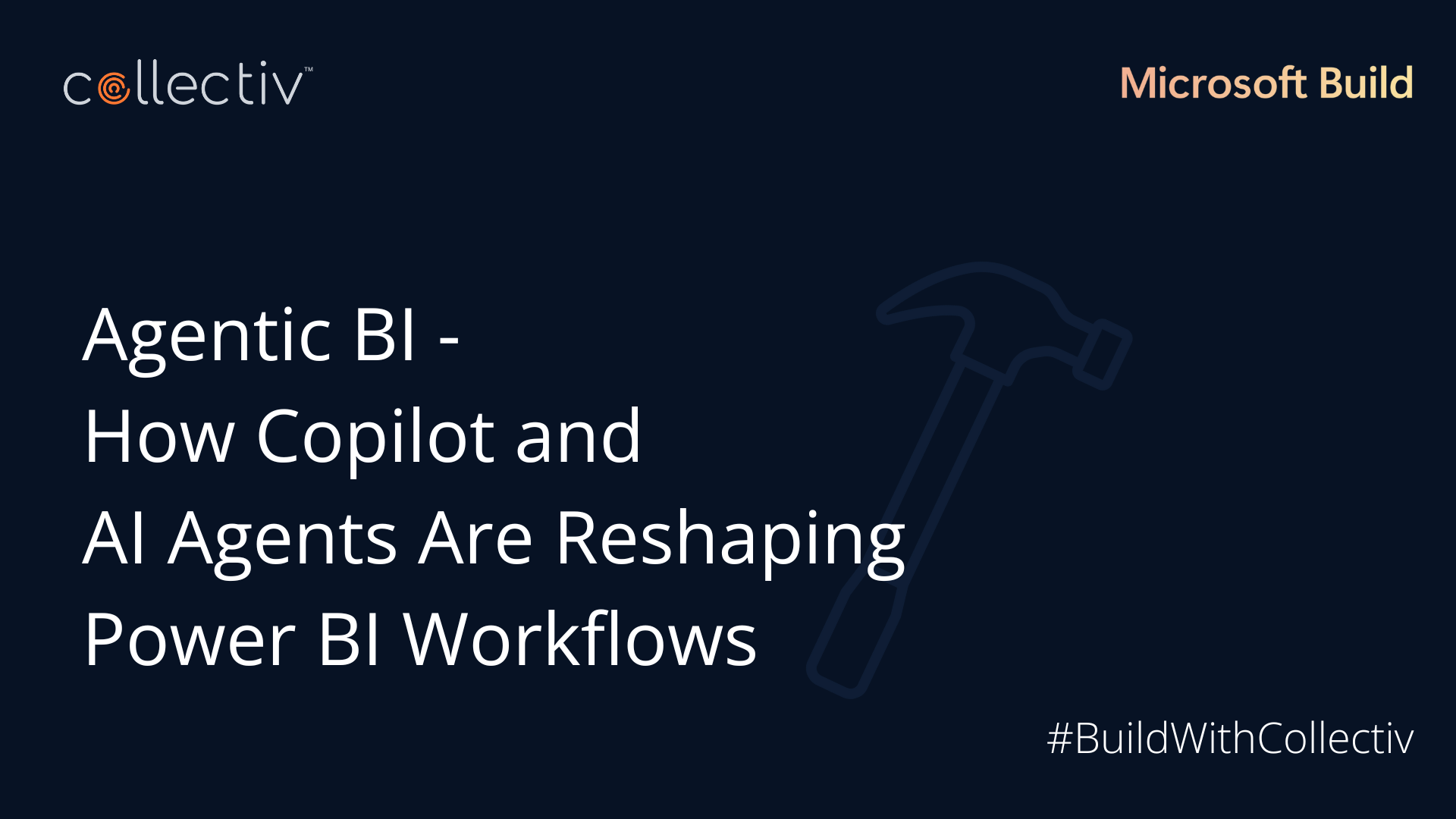At Microsoft Build 2025, one message stood out: AI agents are no longer just futuristic ideas—they’re here to automate, enhance, and redefine how we work with data. For Power BI users, this marks the beginning of Agentic BI: business intelligence powered by context-aware AI agents and copilots that streamline tasks, guide users, and generate insights in real time.
With major updates to Microsoft Copilot, NLWeb, and the Model Context Protocol, Microsoft is leading the charge into an agentic future. Power BI is becoming more than a visualization tool. It’s evolving into an intelligent interface that supports real-time analysis and decision-making.
1. What Is Agentic BI?
Agentic BI describes a shift from static dashboards to dynamic, interactive experiences where AI plays an active role. These agents do more than summarize data. They interpret context, take action, and respond to natural language queries.
With GitHub Copilot, Microsoft Copilot, and the emerging NLWeb and Model Context Protocols, we’re seeing a future where:
- BI developers can co-build reports with AI assistance
- Users get intelligent recommendations during analysis
- Natural language becomes a primary interface for exploration
2. Power BI + Copilot: Smarter, Faster, More Accessible
The latest Copilot updates for Power BI unveiled at Build 2025 mean users can:
- Auto-generate visuals based on text prompts
- Receive narrative summaries of key insights
- Get help building DAX measures or reshaping data models
This shift toward AI-augmented workflows builds on Microsoft’s recent expansion of Copilot access across all Fabric SKUs, unlocking more opportunities for data teams to integrate agentic interfaces into daily operations as we explored here.
This shortens development time, reduces the learning curve, and invites broader user participation without sacrificing governance.
3. AI Agents for BI Teams: Beyond Just Suggestions
The next wave of AI in Power BI is proactive. Intelligent agents can:
- Flag anomalies or trends before users even ask
- Recommend visuals, KPIs, or filters based on behavior
- Automate recurring tasks (e.g., generating monthly reports or refreshing dashboards)
Instead of a dashboard being the end product, it becomes a living interface powered by continuous AI support.
Microsoft’s recent update introduced significant enhancements to Fabric Data Agents, now seamlessly integrated with Copilot in Power BI. This integration allows users to interact with a broader range of data sources including lakehouses, warehouses, and KQL databases through natural language queries. When a question is posed, Copilot intelligently identifies and utilizes the most relevant Fabric Data Agent, retrieving precise insights from the appropriate data source. This advancement simplifies the user experience, enabling more efficient and intuitive data exploration across the enterprise.
4. What This Means for Business Users
Agentic BI empowers finance, operations, and strategy teams to:
- Ask more complex questions without technical blockers
- Collaborate on insights in real time
- Explore what-if scenarios using natural language
It brings the power of enterprise BI directly to the teams making decisions without requiring them to write code or wait on developers.
Final Word:
Microsoft Build 2025 showcased the future of Copilot and AI agents and Power BI is becoming the operating system where it all converges.
With Data Agents now integrated into Fabric, your data becomes not just smarter but truly conversational, connecting users directly to enterprise data with precision and speed.
At Collectiv, we’re helping organizations prepare for this shift by enabling agentic workflows, embedding Copilot capabilities, and designing Fabric and Power BI environments that support both governance and exploration.
Want to explore Agentic BI in your organization?
Let’s talk about how to put Copilot and AI agents to work across your BI stack.




